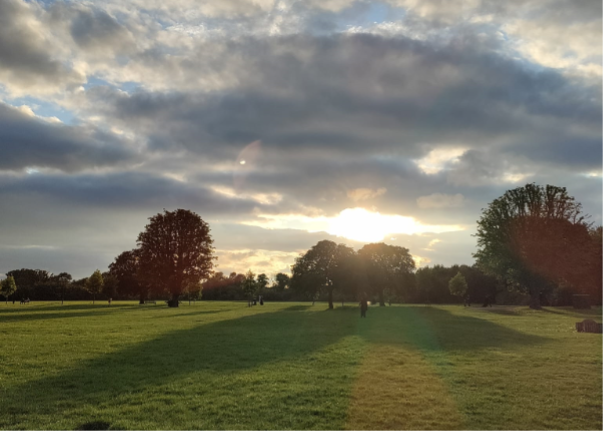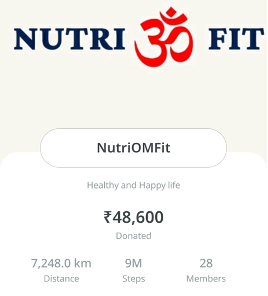
Brisk walking, nothing but walking at a faster pace than normal! Trust me BRISK WALK has a lot of significance on physical and mental wellbeing.
Brisk walking is an excellent aerobic exercise that increases your heart rate and improves blood circulation. Regular brisk walking can strengthen the heart, lower blood pressure, and reduce the risk of cardiovascular diseases, such as heart attacks and strokes. It takes care of your Cardiovascular health
Gaining Excess Weight is a worldwide problem these days and guess what! Brisk walking can help in weight loss and weight maintenance. It burns calories, which contributes to a calorie deficit (We will discuss this in our next blog) when combined with a balanced diet, leading to potential weight loss over time.
While walking, various muscles in the body are engaged, including those in the legs, buttocks, core, and even arms if you swing them while walking. This helps to tone and strengthen these muscles.
Bone health – Brisk walking is considered a weight-bearing exercise, which means it puts stress on bones, helping to maintain bone density and reduce the risk of osteoporosis.
People with movement limitations, or medical ailments which hinder them from doing vigorous exercise can do walking to improve joint health. Walking is a low-impact activity that is gentle on the joints compared to high-impact exercises like running. Brisk walking can help lubricate the joints, reduce stiffness, and alleviate joint pain.

Join our NutriOMFit group (FREE) to donate your steps to a social cause. We made 9 Million steps and donated INR 48000 for Women Empowerment, Child Education, Empower Children & youth development, and Terminally Ill Cancer patients.
Click to Join NutriOMFit (It’s Free)
https://impactapp.page.link/zergicG2FaUiVe3h7
A brisk walk can aid in enhanced lung capacity. Regular brisk walking can improve lung function and capacity. It helps to increase oxygen intake and strengthens the respiratory muscles.
Walking, especially in natural environments, has been shown to reduce stress, anxiety, and symptoms of depression. The release of endorphins during exercise can also boost mood and overall mental well-being.
Cognitive benefits: Studies have suggested that brisk walking can improve cognitive function, including memory, attention, and processing speed. It may also reduce the risk of cognitive decline and dementia in older adults.
Reduced risk of chronic diseases: Engaging in brisk walking regularly has been associated with a decreased risk of developing chronic conditions such as type 2 diabetes, certain cancers, and metabolic syndrome.
Longevity: Research indicates that consistent brisk walking is associated with increased life expectancy, likely due to its positive impact on overall health.
Let’s see some recent studies that support brisk walk role in healthy living
- Well, a study published in the British Journal of Sports Medicine in 2011 found that brisk walking for at least 150 minutes per week was associated with a lower risk of death from all causes.
- Here is another study, published in the Journal of the American Medical Association in 2012, which found that brisk walking for at least 30 minutes per day was associated with a lower risk of heart disease.
- Brisk walking for at least 60 minutes per day was associated with a lower risk of stroke – stated in a study published in the American Journal of Preventive Medicine in 2013
- The Journal of the National Cancer Institute in 2014, shows that brisk walking for at least 75 minutes per week was associated with a lower risk of colon cancer.
- The Annals of Internal Medicine in 2015 published a study which states that brisk walking for at least 100 minutes per week was associated with a lower risk of type 2 diabetes.
It’s important to note that the intensity and duration of brisk walking will vary based on individual fitness levels and goals. As with any exercise/physical activity, it’s advisable to consult with a healthcare professional before starting a new routine, especially if you have any pre-existing medical conditions.
Final Thought!
How much time do you spend in front of SMART GADGETS vs NATURE WALK?
